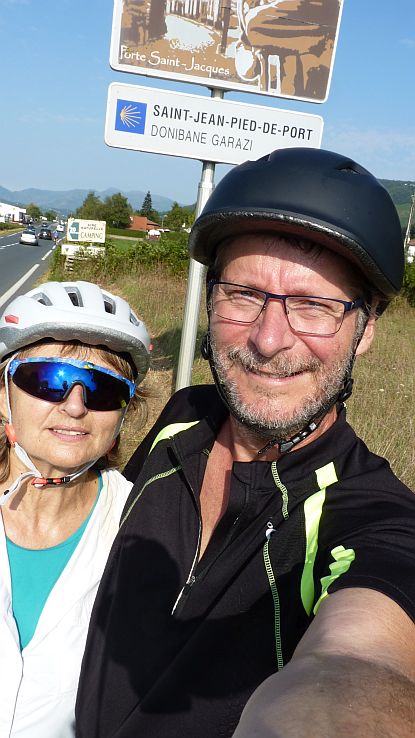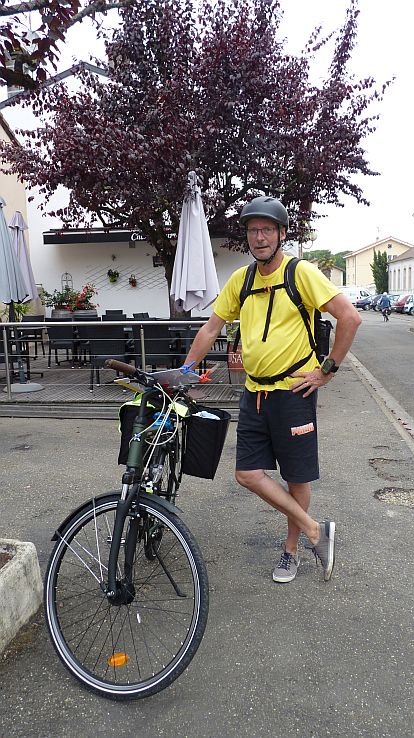Deep brain stimulation to fight Parkinson's disease
Published Feb 7, 2020 • By Louise Bollecker
Following a Parkinson disease diagnosis, Daniel began taking medication before opting for deep brain stimulation: thanks to the operation, his symptoms were reduced and his quality of life went up. He walks us through the steps of his journey up to this operation which many patients find frightening.

Hello and thank you for agreeing to talk to us. Could you tell us a little about yourself?
My name is Daniel Schmitt, I'm 61, married and the father of 2 daughters. I've been on disability since March 2016 and I haven't worked since May 2016, when I was laid off due to being physically unfit to work. I'm a very active person, I paint and I write, I even wrote a booked called "Parkinson, ma renaissance grâce à la neurostimulation" ("Parkinson's, my rebirth thanks to deep brain stimulation", link in French) where I try to ease the fear around the operation and where I recommend it to anyone who's eligible to get it.
Since the beginning of this year, I'm also a delegate of the France Parkinson (link in French) Association.

What were the initial symptoms of Parkinson's disease?
My left arm started dangling in a stooped position and sometimes it was as if my left foot were stuck to the pavement unable to move. When I was diagnosed I didn't know much about the illness at all. Apart from the symptoms I just described, I didn't have any other worries and I was able to muddle through my daily occupations.
What treatments were you prescribed?
The only medication I was prescribed was Ropinirole, 12mg in the morning and 8mg in the evening for 6 months after the diagnosis. Then I changed neurologists because I wasn't very satisfied with the one I was seeing. I went to the Parkinson Centre in Strasbourg where my neurologist proposed deep brain stimulation in January 2018.
Was it a difficult decision to do deep brain stimulation?
It was, and that's the reason I wrote the book I talked to you about earlier. I started looking at the reviews people left on the internet and since it's usually the people with the most negative reviews who bother to write them, I lost all desire to continue. Then I decided to talk to people who have already had deep brain stimulation and it was a 180° change. Everyone was happy with the operation: so I said I might as well try DBS too.
What was the operation like?
The operation consists of inserting two electrodes into the brain and sending an electric charge through 4 cones on each electrode, turning up the current until they get the biggest reduction of symptoms. When they put in the wire, it doesn't hurt at all, you don't feel anything. In fact, you're awake during the entire operation and the neurologist asks you to count to ten or recite the months of the year backwards. They do put you under general anasthesia when they insert the battery (rechargeable by induction). Everything went extremely well: just two days after the operation, I was walking the way I did before I got sick.
What benefits did you get from deep brain stimulation?
The number of medications I had to take. Before the operation I was taking 1 Requip 8mg, 1 Madopar 125mg and 2 Sinemet 100/10, the last ones I was taking every two hours until bedtime and finally 1 Sinemet LP. After the operation, I went down to 1 Requip 4mg and 1 Sinemet 100/10 every 4 hours.
How are you doing now? What treatments are you taking and what are your projects?
I'm alright, I go to the hospital every 3 months to re-adjust the electric current and now I'm down to 1.5 Sinemet 100/10 pills every 2 and a quarter hours with 1 Requip 4mg in the morning.
Last August, I did the French part of the Saint-James Trail on a regular bicycle (not electric). 102 miles in 5 days all the way to Saint Jean Pied de Port! We're going to Lanzarote in February and I wanted to go to Australia but it's just an idea for the moment.

What advice would you give to someone living with Parkinson's disease who is hesitating over whether to do the operation?
If you're eligible for it, do it, it can change your life. But be aware, the age limit is 70; afterwards, it's no longer possible. If you still need convincing, take a look at my book and I'm sure you'll be saying yes to a neurosurgeon! But be realistic, it's not a cure, it's an improvement in your quality of life.
--
Editor's note: This article is not meant as medical advice. Talk to your doctor!

 Facebook
Facebook Twitter
Twitter




